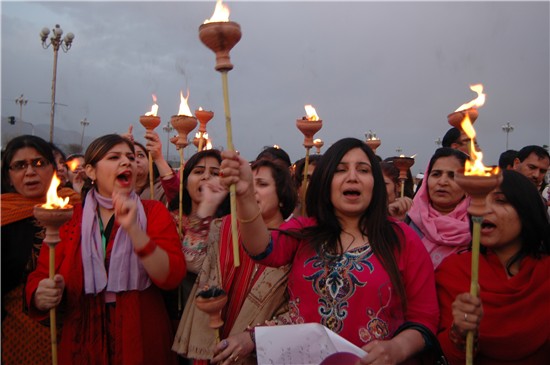 International Women’s Day
International Women’s Day
54m women in Pakistan need adequate food to survive
While we celebrate International Women’s Day (Thursday- the 8th March 2012), estimates and simulations show that over 54.6 million women in Pakistan are in dire need of adequate food and the required nutrition as almost 48.6% of the country’s 187.3 million population (July 2011 estimates) is reported to have been food insecure, 60% of which are women.
FIAN International Pakistan chapter housed at the Journalists for Democracy and Human Rights (JDHR) here demands of the government of Pakistan to strengthen its efforts to realize women’s right to adequate food at a time when women in rural and peri urban areas are bearing the brunt of food insecurity and poverty fueled after the 2010-11 floods in parts of the county.
According to the UN, 925 million people across the world were chronically hungry, 60 percent of them are women. “Women’s right to food is still one of the most violated rights in the world, said Flavio Valente, Secretary General of the international human rights organization fighting for the right to food. “What we often find, is that these violations are the result of structural violence against women and a lack of accountability on the part of governments, which have a direct obligation to protect its people against hunger.”
Due to FIAN interventions, in 2011, for the first time, the pertinent UN committee to monitor the fulfillment of the Convention on the Elimination of All Forms of Discrimination against Women (CEDAW), clearly acknowledged the right to food of women in their concluding recommendations to governments.
In a statement, presented by FIAN to CEDAW, women explained their situation: “Often we do not know what we will eat and feed our children the next day. When we eat we have to be limited to one snack per day, which only consists of rice or noodles. Lack of access and availability of adequate food, insufficient protein or vitaminsaffects our health, learning ability of our children and our capacity to work.”
“Monitoring and mechanisms to achieve state accountability must proceed with an understanding of the need for overcoming the specific barriers of discrimination and structural violence that women face when attempting to fulfill their human right to adequate food,” concludes Flavio Valente.